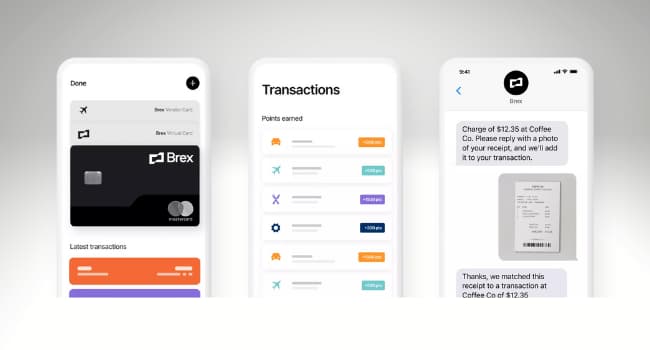The fintech platform Brex made waves recently when it decided to walk away from tens of thousands of small business customers. The company announced that it prefers to focus on start-ups and enterprises. And as everyone knows, you can’t make everyone happy.
The decision has produced a bit of a backlash against Brex. And it has opened up an opportunity for Brex’s competitors to swoop in and grab its soon-to-depart SMB customers. And throw some shade in the process.
Barrick Rothchild, Henrique Dubugras, and Pedro Franceschi founded Utah-based Brex in 2017. The company’s original mission was to help startups borrow money to keep the doors open as they try to grow. In 2020, the company extended this service to regular brick-and-mortar SMBs. In addition to lending, Brex helps companies track and manage expenses. It also issues corporate credit cards.
We Can Quit You, Ms. Small Business Owner
Brex’s leaders explained that over time it learned that it needed to adapt its product to help its early start-up clients grow into enterprise clients. This required changes to its product. And it left little room to service SMBs, which may not be as focused on growth as a tech startup. In other words, most small businesses stay small.
“Over time, we realized that our startup customers – the very customers we started with – were growing very fast, and needed Brex to scale with them,” Franceschi, who is co-CEO, wrote on Twitter. “Scale AI went from five people when we started serving them, to almost 1,000. Brex didn’t work as well for larger companies.”
Franceschi caught some heat, mainly for the manner in which he announced the decision, but also for its wisdom. As noted, the company gave small businesses two months to find another home. It also established criteria for remaining on the platform. So if you’re not VC or accelerator backed, it’s time to, in Logan Roy‘s words, “f**k off.”
Well, in two months’ time anyway.
Here is an example of that sentiment this decision produced on Twitter.
I don’t understand in what world you exit a market in which you are the *default* choice for customers! My wife’s e-commerce business was rejected by Brex and she will never go back.
— Safouen Rabah (@safouen) June 18, 2022
While two months may seem like a reasonable grace period, the decision, and its suddenness, created an unexpected headache for Brex customers.
Later, Franceschi admitted his handling of the matter was perhaps a bit ham-handed. The bit about only wanting to work with funded businesses seemed to come across as particularly arrogant. He told TechCrunch that he’d take a do-over on the comms if he could.
Franceschi acknowledged that he did a “poor job explaining this decision, which eroded some of the valuable trust” that the company has accumulated since its launch.
He also told TechCrunch, “We didn’t clearly communicate who qualifies as a Brex customer moving forward, which created confusion about which companies Brex would still serve.”
Sharks in the Water
It also appears that in Brex’s wake, a flurry of competing fintechs have swooped in to try and profit off of the company’s decisions. They are doing this by going after Brex’s SMB customers. Others are also going on PR blitzes to position themselves as the true friend of the small business owner.
After we wrote about Brex last week, we received unsolicited quotes from a Brex competitor who sensed an opportunity to do a bit of apple polishing with small businesses.
Eytan Bensoussan, CEO of Brex competitor NorthOne offered up this quote.
“I’m disappointed in Brex. They may have been our competition, but I’ll always have respect for any company that’s trying to provide a better banking experience for small businesses. By suddenly closing accounts of thousands of smaller businesses, the ones that need help the most, they’ve let so many people down, including those of us in the industry that believed we were fighting the same fight for the benefit of small businesses everywhere,” Bensoussan said.
There was more but you get the idea.
The online newsletter Banking Dive wrote a follow-up piece on the Brex-it from the SMB market, noting other competitors who sensed an opportunity.
One is Ramp. Its Chief Business Officer Colin Kennedy told Banking Dive that he didn’t “see a need to make a choice between one of the other”. He was clearly referring to Brex’s decision to drop SMBs so it can serve the enterprise market. A subtle bit of shade.
Another is Aliaswire. Its CEO Jed Rice told Banking Dive that small businesses have “long memories,” suggesting Brex’s decision to drop SMBs will be irreversible. That’s good news for Aliaswire, which is focused on the SMB market.
Other companies that could step into the breach and help Brex’s erstwhile SMB customers include Airbase, Divvy, Mercury, and others.




